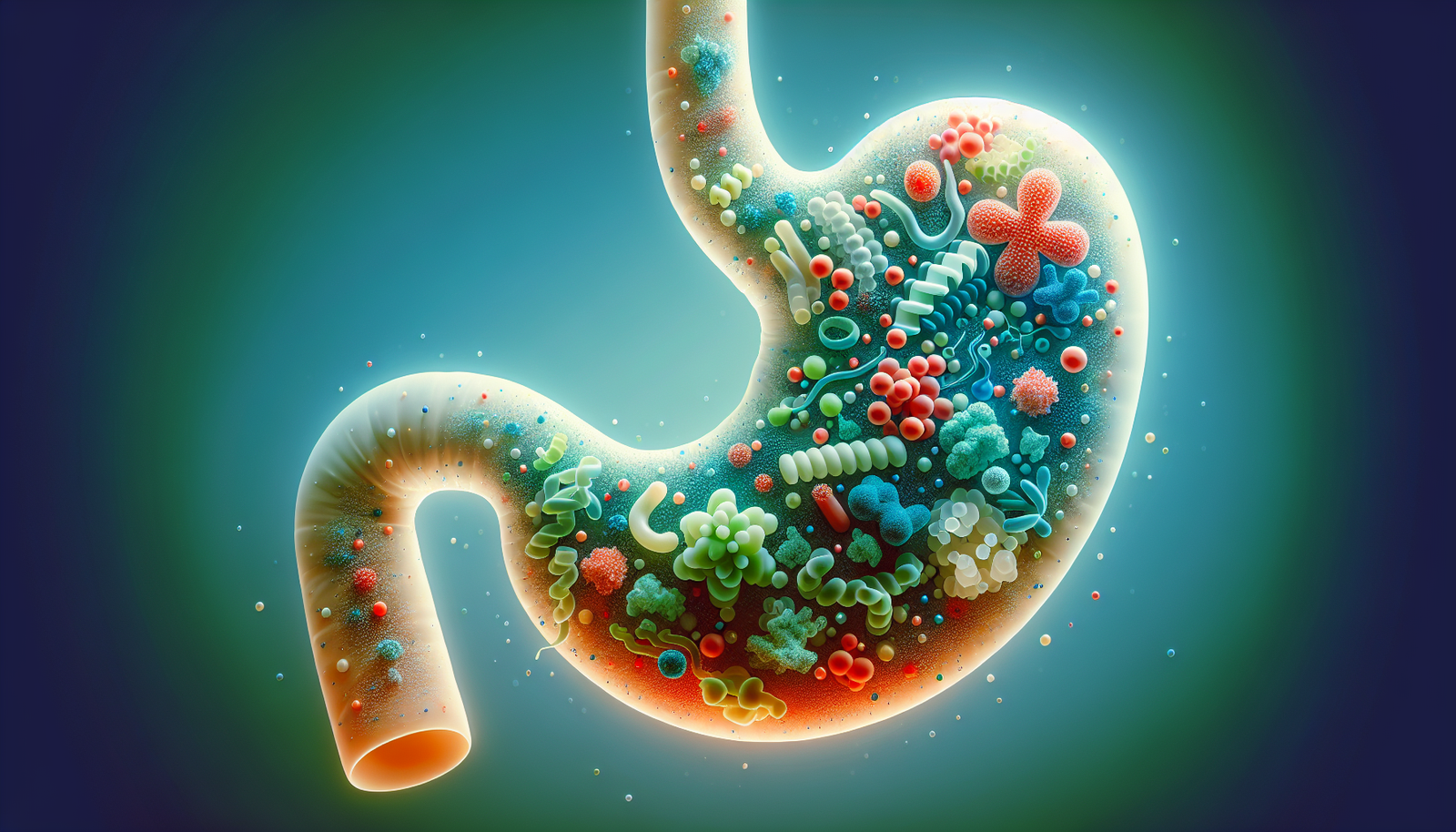Signs Your Gut Health Needs Attention
Signs Your Gut Health Needs Attention
Maintaining a healthy gut is crucial for overall health, yet many people overlook its significance until they experience problems. The gut, also known as the gastrointestinal (GI) tract, is responsible for digestion, absorption of nutrients, and plays a vital role in the immune system. When gut health is compromised, a range of symptoms can arise. Here are the signs your gut health needs attention.
1. Digestive Issues
Digestive problems are often the first indicators of an unhealthy gut. If you experience persistent bloating, gas, constipation, diarrhea, or heartburn, it’s a clear sign that something is amiss in your digestive system.
- Bloating: This sensation of fullness can be due to food intolerances, imbalances in gut bacteria, or slow digestion.
- Gas: While some gas is normal, excessive gas can indicate issues like bacterial overgrowth in the intestines.
- Constipation & Diarrhea: Regular disruptions in bowel movements may suggest dysbiosis, which is an imbalance in gut microbiota.
2. Food Intolerances and Sensitivities
If you find yourself becoming increasingly sensitive to certain foods, this could point to an unhealthy gut lining. Conditions such as leaky gut syndrome can result in the body’s immune system reacting negatively to food particles.
- Symptoms: Common reactions include abdominal pain, swelling, and nausea after consuming specific foods, particularly gluten and dairy.
- Testing: Keeping a food diary can help identify triggers and is beneficial for tracking symptoms related to gut health.
3. Unintentional Weight Changes
Significant weight loss or gain without changes to diet or physical activity could indicate gut health issues. A healthy gut helps regulate weight by affecting how food is digested and how fat is stored.
- Weight Loss: This may result from malabsorption, where the gut fails to absorb nutrients effectively.
- Weight Gain: An imbalance in gut bacteria can affect metabolism and contribute to obesity.
4. Fatigue and Sleep Disturbances
Gut health has a direct correlation with energy levels and sleep quality. If you feel chronically fatigued or have trouble sleeping, it’s worth examining your gut health.
- Sleep Problems: The gut microbiome can influence the production of neurotransmitters like serotonin, which are essential for sleep regulation.
- Fatigue: An unhealthy gut may hamper nutrient absorption, leading to deficiencies that contribute to tiredness.
5. Skin Irritations
Conditions like eczema, acne, and psoriasis can often be linked to gut health. The gut and skin communicate through what is known as the gut-skin axis.
- Eczema & Other Rashes: Inflammation and imbalance in gut bacteria can trigger skin flare-ups.
- Acne: Poor gut health can lead to an overproduction of sebum, causing blocked pores and acne.
6. Autoimmune Disorders
A compromised gut can lead to systemic inflammation, increasing the risk of autoimmune diseases. When the gut is not functioning properly, it may allow toxins and undigested food particles to enter the bloodstream, which can trigger immune responses.
- Symptoms: Chronic inflammation can result in fatigue, joint pain, and multiple chemical sensitivities.
- Examples: Conditions like rheumatoid arthritis, lupus, and Hashimoto’s thyroiditis may proliferate in individuals with underlying gut issues.
7. Mood Changes
Recent studies link gut health with mental health, establishing that an imbalance in gut bacteria can manifest as mood disorders such as anxiety and depression.
- Gut-Brain Axis: The gut microbiome produces neurotransmitters like serotonin. An unhealthy gut may reduce serotonin levels, impacting mood.
- Symptoms: Changes in mood, increased anxiety, or feelings of depression can indicate the necessity for gut rebalancing.
8. Bad Breath
Halitosis, or bad breath, can be the result of gut issues. It may indicate an overgrowth of bacteria in the gut that leads to poor digestion.
- Connection to Gut: An imbalanced microbiome can lead to fermentation processes that emit foul-smelling gases.
- In combination with: Dental issues, persistent bad breath combined with digestive discomfort signals a potential gut health problem.
9. Frequent Infections or Illnesses
A weakened immune system can be linked to gut health. Since around 70% of the body’s immune system is in the gut, a lack of diversity in gut bacteria may compromise immunity.
- Frequent Colds/Flus: If you frequently catch colds or infections, this may indicate an imbalance in gut health.
- Healing Time: Prolonged recovery from illnesses could also be a sign of compromised gut health.
10. Oral Health Issues
Your mouth and gut are interconnected. Issues such as gum disease, tooth decay, and bad breath can reflect the health of your gut.
- Connection to the Gut: Poor gut health can lead to an imbalance in oral bacteria, resulting in dental issues.
- Signs: Recurrent cavities, gum problems, and persistent bad breath warrant a closer examination of gut health.
11. Nutritional Deficiencies
If you notice symptoms of nutritional deficiencies—like brittle nails, thinning hair, or periodontal disease—it may be a sign of malabsorption caused by gut issues.
- Micronutrient Absorption: Conditions like celiac disease or inflammatory bowel syndrome (IBD) can impair nutrient absorption.
- Symptoms to Monitor: Low energy or weakness can emerge from vitamin/mineral deficiencies resulting from poor gut health.
12. Chronic Inflammation
Chronic inflammation in the body can often stem from an unhealthy gut. Conditions like inflammatory bowel disease (IBD) or irritable bowel syndrome (IBS) exemplify how gut issues can lead to ongoing inflammation.
- C-Reactive Protein (CRP): Elevated levels of CRP in the blood suggest ongoing inflammation and may indicate underlying gut issues.
- Symptoms: Joint pain, bloating, or fatigue can signal inflammation linked to gut health.
13. Changes in Appetite
Sudden shifts in appetite can be associated with gut health disruptions. An imbalanced microbiome can affect hormones that govern hunger and satiety.
- Loss of Appetite: Conditions like IBS can lead to a decreased desire to eat due to discomfort after eating.
- Increased Cravings: Gut dysbiosis can also provoke cravings for sugary or high-fat foods, disrupting emotional and physical health.
14. Overuse of Antibiotics
Frequent use of antibiotics can disrupt gut microbiota and reduce gut health. While they can be lifesaving, overreliance on antibiotics may lead to long-term gut issues.
- Antibiotic Resistance: Repeated antibiotic use can lead to resistant strains of bacteria, complicating gut issues and overall health.
- Rebalancing: It’s crucial to employ probiotics and dietary adjustments post-antibiotic treatment to restore healthy flora.
15. Foul-Feeling Feces
Changes in stool quality, such as foul-smelling, greasy, or floaty stools, may indicate issues with fat absorption, commonly associated with poor gut health.
- Color and Consistency: Unusual coloration or metallic odors can suggest that dietary changes or gut health needs immediate assessment.
- Health Conditions: Conditions like pancreatic insufficiency can lead to such symptoms, indicating a need for medical attention.
16. Gastroesophageal Reflux Disease (GERD)
GERD is characterized by acid reflux that may not only stem from excess stomach acid but also from poor gut function.
- Symptoms: Persistent heartburn, acid reflux, and difficulty swallowing can accompany other gut health signs.
- Treatment Considerations: Diet modification and assessment of gut health can mitigate GERD symptoms significantly.
17. Recurring Yeast Infections
The body naturally contains yeast, such as Candida. However, an imbalance due to poor gut health can lead to overgrowth and subsequent infections.
- Imbalance Triggers: Factors like antibiotic use, high-sugar diets, and stress can trigger yeast overgrowth.
- Signs of Infection: Symptoms include itching, burning, and an unusual discharge, indicating a need for gut health improvements.
18. Dysbiosis Symptoms
Dysbiosis refers to an imbalance of gut bacteria that can result in various health issues. Symptoms may overlap with other gut-related concerns but are distinct in their chronic nature.
- Persistent Symptoms: Maintaining a state of dysbiosis can result in chronic gas, bloating, and other digestive disturbances.
- Treatment Needs: Effective treatment plans typically involve probiotics, dietary changes, and addressing underlying lifestyle factors.
19. Hormonal Imbalances
Hormones play a critical role in how your gut operates; imbalances can lead to altered gut function, which in turn can affect digestive health.
- Signs of Imbalance: Symptoms include premenstrual syndrome (PMS), irregular cycles, and menopause symptoms reflecting compromised gut health.
- Management: Consulting healthcare professionals for a holistic approach is key to restoring balance.
Understanding these signs can help you take proactive steps toward healthier gut dynamics, paving the way for improved physical and mental well-being. Recognizing issues early can lead to appropriate interventions and lifestyle changes that enhance overall gut health. Pay attention to these symptoms, and don’t hesitate to seek professional guidance when needed.








